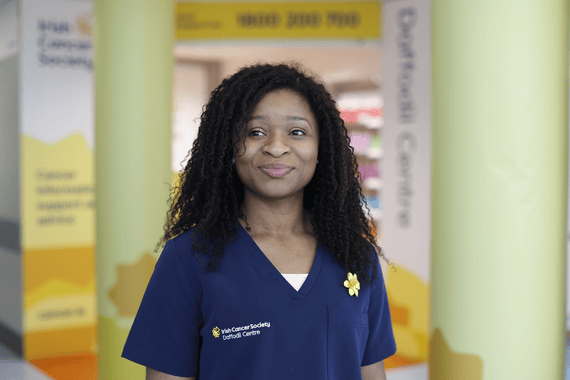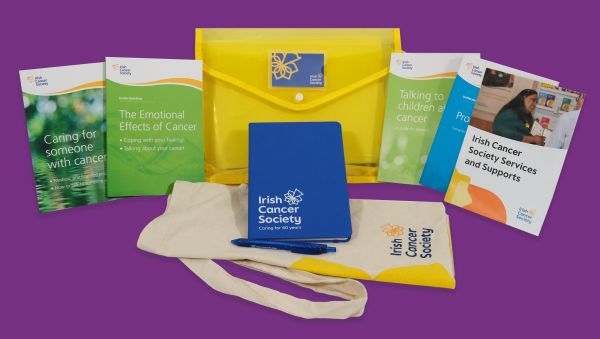Mesothelioma
Diagnosis and tests
Diagnosing mesothelioma
Tests with your GP
Tell your family doctor (GP) about your symptoms and if you were exposed to asbestos. They may refer you to hospital or a rapid access lung clinic. These are consultant-led assessment and diagnostic services for patients with suspected lung disease. There are eight rapid access clinics located around the country; your GP will send you to your nearest one.

If you are diagnosed with mesothelioma, we're here for you.
Our cancer nurses are here if you need information or just want to talk. They can help you to understand your diagnosis and what to expect, send you information and tell you about our services.
Further tests at the hospital
You may need further tests to give your doctors more information about your general health and about the cancer. For example:
An X-ray to see if there is a build-up of fluid on your lungs (pleural effusion).
A type of X-ray that gives a detailed picture of the tissues inside your body to see where the cancer is and if it has spread.
Read more about CT scans.
A flexible tube with a light and camera put into your chest through a cut between your ribs. It can see if the membranes that line the lungs (pleura) look normal. This may be done under general or local anesthetic with sedation. A biopsy (sample of tissue) is usually taken during this procedure.
Taking a sample of the fluid inside the chest. The doctor puts a small needle and/or tube into the chest cavity, this drains the fluid into a bag, this fluid is then sent to the laboratory to test for cancer cells.
Read more about pleural aspiration.
This means taking a sample of the cells in the pleura (lung membranes) and looking at them under a microscope to check for mesothelioma. This is usually done during a thoracoscopy. The results usually take about two weeks.
Read more about having a biopsy.
A small tube with a camera on the end is passed into your lungs through your nose or mouth to take pictures (and maybe samples) of your lungs.
Read more about having a bronchoscopy.
Putting a tube with a light and a camera into the centre of your chest area, through a small cut at the front of your lower neck. It can see if there are any abnormal areas and if the cancer has spread to the lymph nodes there.
Read more about having a mediastinoscopy.
A respiratory doctor is a doctor who specialises in treating problems with the lungs.
If you’re diagnosed with mesothelioma through being exposed to asbestos in the past, you may be entitled to compensation. Ask your doctor or a solicitor about this.
Waiting for test results
While some results may come back quickly, others may take a few weeks. Waiting for results can be an anxious time. It may help to talk things over with your doctor or nurse or with a relative or close friend. You can also call our Support Line on 1800 200 700 or visit a Daffodil Centre to speak to a cancer nurse.
Continue reading about mesothelioma




Get help & support

Support Line
Free support pack

